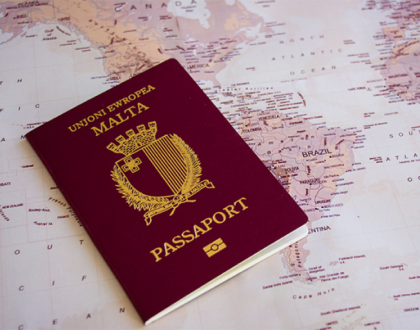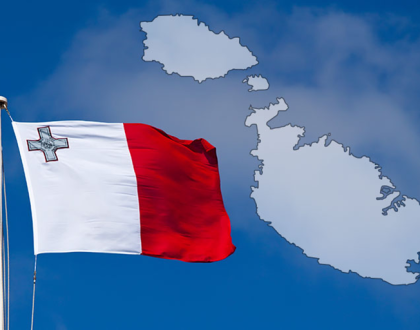Cryptocurrency Regulations in Malta

With the rise of #cryptocurrencies as a popular form of #investment and #transactions, governments around the world are implementing #regulations to govern their use. In #Malta, a small island nation in the #Mediterranean, cryptocurrency regulations have sparked significant changes in the financial landscape. Understanding the impact of these regulations is crucial for both investors and businesses operating in this evolving market.
Overview of Cryptocurrency in Malta
Historical Context and Growth
Cryptocurrency in Malta has seen significant growth in recent years, propelled by the country's proactive approach towards blockchain technology and digital assets.
Malta as a Blockchain Island
Growth in Malta as a Blockchain Island has been remarkable, as the government and regulatory bodies have established a conducive environment for cryptocurrency companies to operate.
With a robust legal framework supporting the industry, Malta has attracted numerous blockchain businesses and exchanges, making it a global hub for cryptocurrency innovation and investment.
Regulatory Frameworks in Malta
Major Regulations and Their Evolution
The regulatory landscape in Malta for cryptocurrency has evolved significantly over the years. The Malta Digital Innovation Authority Act was one of the first regulatory frameworks introduced in 2018, followed by the Virtual Financial Assets Act and the Innovative Technology Arrangements and Services Act. These regulations aim to provide clarity and legal certainty for businesses operating in the cryptocurrency space.
Implementing Agencies and Their Roles
Regulatory oversight in Malta is primarily led by the Malta Financial Services Authority (MFSA) and the Malta Digital Innovation Authority (MDIA). The MFSA is responsible for overseeing compliance with financial regulations, while the MDIA focuses on ensuring innovation and technology compliance within the cryptocurrency sector.
Plus, the Financial Intelligence Analysis Unit (FIAU) plays a crucial role in combating money laundering and terrorism financing. This agency works closely with cryptocurrency businesses to ensure compliance with anti-money laundering and counter-terrorism financing regulations.
Impacts of Regulations on the Crypto Industry
Benefits to the Economy and Innovation
Regulations in the cryptocurrency industry in Malta have brought about several benefits to the economy and innovation. The clear legal framework provides stability and attracts investors, fostering growth in the sector. Additionally, regulations have promoted confidence among businesses, leading to increased adoption of blockchain technology for various innovative applications.
Challenges Faced by Businesses and Investors
Challenges in the crypto industry arise from the stringent regulatory requirements imposed by authorities in Malta. Businesses and investors must navigate through complex compliance procedures, leading to increased operational costs and delays in projects. Additionally, the strict regulations may deter some potential players from entering the market, limiting the industry's overall growth potential.
Furthermore, the constantly evolving nature of regulations presents an ongoing challenge for businesses and investors to stay updated and ensure compliance with the latest requirements, adding another layer of complexity to operations within the cryptocurrency sector.
The Future of Cryptocurrency in Malta
Potential Regulatory Changes
One potential regulatory change that Malta may consider is further streamlining the licensing process for cryptocurrency businesses. This could attract even more companies to set up base in Malta, further solidifying its position as a blockchain and cryptocurrency hub.
Long-Term Industry Outlook
Malta has the opportunity to become a leader in the global cryptocurrency industry if it continues to foster innovation and create a conducive environment for businesses. With the right regulatory framework and support from the government, Malta could pave the way for the mainstream adoption of cryptocurrencies.
Cryptocurrency has the potential to revolutionize the financial industry, and Malta is positioning itself to be at the forefront of this revolution. By embracing new technologies and staying ahead of the regulatory curve, Malta can attract more investment and talent to further develop its cryptocurrency ecosystem.
To wrap up
So, the impact of cryptocurrency regulations in Malta has been significant in establishing a clear legal framework to govern the industry. By providing guidelines for businesses and investors, Malta has positioned itself as a leader in the cryptocurrency space. Its proactive approach to regulation has fostered innovation and investment in the country, making it an attractive destination for crypto-related businesses.
FAQs
What is the current state of cryptocurrency regulations in Malta?
Malta has established a robust regulatory framework for cryptocurrencies, including the Malta Digital Innovation Authority Act, the Virtual Financial Assets Act, and the Innovative Technology Arrangements and Services Act. These regulations aim to provide legal clarity and support innovation within the industry.
Who are the main regulatory bodies overseeing cryptocurrency in Malta?
The Malta Financial Services Authority (MFSA) oversees financial compliance, the Malta Digital Innovation Authority (MDIA) ensures technology and innovation compliance, and the Financial Intelligence Analysis Unit (FIAU) focuses on anti-money laundering and counter-terrorism financing efforts.
How have cryptocurrency regulations impacted businesses in Malta?
The regulations have provided stability and attracted investment, fostering growth and innovation. However, businesses face challenges due to complex compliance procedures and increased operational costs, which can deter some potential market entrants.
What future regulatory changes might Malta consider for cryptocurrencies?
Malta may consider streamlining the licensing process for cryptocurrency businesses, which could attract more companies and further enhance its position as a global blockchain hub.
How is Malta positioning itself for the future of cryptocurrency?
Malta aims to lead in the global cryptocurrency industry by fostering innovation and maintaining a supportive regulatory environment. The country is working to attract investment and talent to strengthen its cryptocurrency ecosystem.
Michael
With over 20 years experience in web design, SEO and website promotion I always give you an expert advice in regard to any issues related to your Site Design, SEO, Internet Marketing, Promotion, Backlinks, Site Content. In order to help you find out what is missing or can be improved and get higher rankings in Google and more traffic.
Recommended Posts

Sportingtech Boosts Security with Continent 8
October 4, 2024

Legal Win for Malta’s Citizenship Program
October 4, 2024

Why iGaming Brands Choose Malta
October 4, 2024



